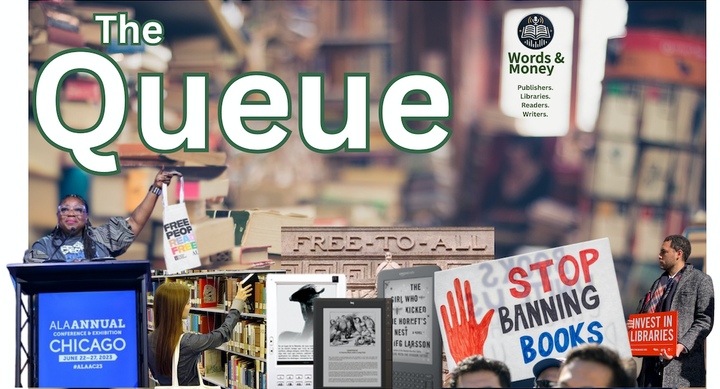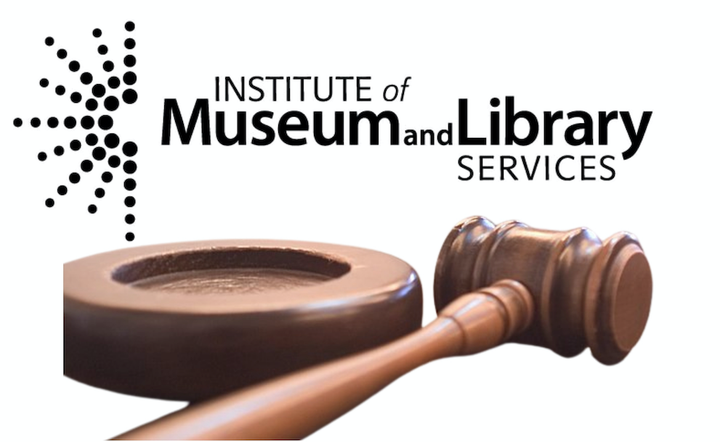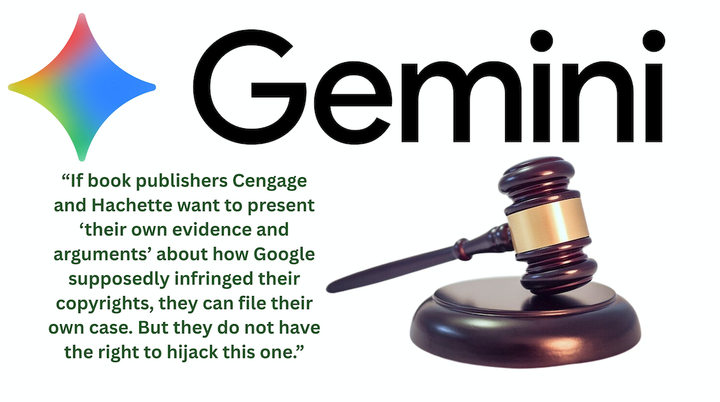Fired Register of Copyrights Will Appeal after Court Declines to Reinstate Her
Shira Perlmutter failed to show that "the existence of the Copyright Office is at stake, or that her position will likely be irreparably changed without an injunction," judge Timothy Kelly held in a July 30 order denying a motion to block her May 10 firing.

In a narrow order issued on July 30, a federal judge declined to issue a preliminary injunction reinstating fired register of copyrights Shira Perlmutter, finding that she failed to show that her removal is causing "irreparable harm," a key requirement for issuing injunctive relief.
"The Court’s analysis begins and ends with irreparable harm," wrote Washington D.C.-based judge Timothy Kelly, a Trump appointee, in his 15-page opinion and order. “Perlmutter argues that her removal from office—even if only temporary—is irreparable harm that can only be prevented by a preliminary injunction. The Court is unconvinced, so it will deny her motion.”
Perlmutter had argued that her May 10 firing created a "genuinely extraordinary situation" and that that the administration’s actions to remove her are illegal, in violation of her “statutory right” to carry out her duties, and causing "irreparable harm to the Library of Congress and Copyright Office."
But in his decision, which followed swiftly after oral arguments held on July 23, Kelly concluded that the Copyright Office would not "grind to a halt" without Perlmutter at the helm, and that any harm facing Perlmutter could be "remediated in the ordinary course by returning her to her position if she prevails on the merits."
"Perlmutter has not shown that the existence of the Copyright Office is at stake, or that her position will likely be irreparably changed without an injunction," Kelly ruled, without addressing the legality of her firing. Even assuming that her removal is unlawful, Kelly wrote, the firing does not necessarily create "a genuinely extraordinary situation such that her temporary removal is irreparable harm—or at least, harm that outweighs any corresponding risk of harm to the Government such that the balance of the equities tips in her favor."
The litigation began after Perlmutter was axed via email on Saturday, May 10, just days after the shock firing of Librarian of Congress Carla Hayden. On May 22, Perlmutter sued, asking a federal court to block the Trump administration’s attempt to fire her and replace her with veteran DOJ attorney Paul Perkins.
In her initial 14-page complaint, Perlmutter claimed that Trump lacks the authority to fire her, or to appoint her replacement. Those powers, the suit argues, are by law reserved for the Librarian of Congress.
Meanwhile, at press time it remains unclear who is actually running the Copyright Office. Despite Trump naming his former personal attorney and current DOJ official Todd Blanche as acting Librarian of Congress, Robert Newlen, Hayden's deputy, appears to still be in charge at the Library of Congress, which has oversight over the Copyright Office. But according to reports, Perkins, who was appointed by Blanche to replace Perlmutter, was denied entry by library staffers when he first attempted to report to work at the Copyright Office in May, and has reportedly not returned since.
Perlmutter's dismissal surprised and outraged stakeholders in the copyright and Intellectual Property communities, who had given her high marks for her work at the Copyright Office, including significant progress on a much-needed modernization effort overseen by the Library of Congress. Critics of the firing have also alleged that her firing may be tied to the pre-publication release of the third and final part of a wide-ranging Copyright Office review of the legal and policy questions swirling around AI—issues that the Trump Administstation's AI Action Plan, released last week, fail to even mention.
Kelly's denial of Perlmutter's bid for a preliminary injunction was not unexpected—the judge had raised identical concerns about Perlmutter's ability to show irreparable harm in denying Perlmutter's motion for a temporary restraining order on May 28.
In a followup order this week, Kelly gave the parties until August 6 to file a proposed schedule for next steps in the litigation. Prior to moving for a preliminary injunction, Perlmutter had signaled her preference to seek summary judgment on an expedited basis, which Kelly, in his order, anticipates will again be the case. But in a July 31 filing, Perlmutter, notified the court that she is appealing Kelly's decision.
To be sure, Kelly's denial significantly complicates Perlmutter's legal road back to the Copyright office. Even on an expedited basis, the appeal and the summary judgment processes could take many months to litigate. And even if Perlmutter is right on the merits and her firing is found to be illegal, that likely will not be enough to save her job—at least not for long.
After all, while Trump's power to fire the register and to appoint an acting Librarian of Congress may be in question, the president is free to nominate a permanent Librarian of Congress at any point. And once confirmed by the Senate, the new Librarian of Congress could legally install a new register of copyrights, effectively mooting Perlmutter's case.


